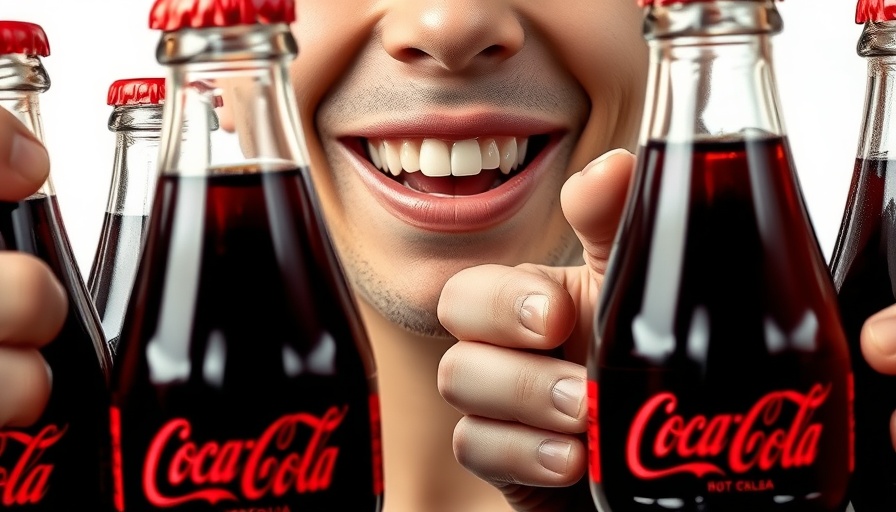
Trump’s Push for Real Cane Sugar: A Sweet Proposal
On a recent Wednesday, President Donald Trump made waves on social media with his announcement on Truth Social. He declared he had persuaded Coca-Cola to shift from high-fructose corn syrup to real cane sugar in their American products, echoing the formula used in Mexican Coca-Cola, which continues to gain a cult following among U.S. consumers. "This will be a very good move by them — You’ll see. It’s just better!" he declared.
A Shift Towards Healthier Ingredients
This trend towards more natural ingredients aligns with the administration's "Make America Healthy Again" initiative, led by Health and Human Services Secretary Robert F. Kennedy Jr. This campaign targets food companies for greater transparency regarding artificial ingredients and additives. In a health-conscious era where consumers are becoming more aware of what they are putting into their bodies, Trump’s appeal to Coca-Cola may resonate more strongly than intended.
The Enduring Appeal of Mexican Coke
Coca-Cola products are loved across the globe, but in the U.S., many fans swear that the flavor of "Mexican Coke" is superior. This version, sweetened with cane sugar, is often preferred due to its distinct, less syrupy taste. The fact that many American consumers have actively sought this product out highlights a growing demand for authenticity in food and beverage choices, contrasting with the overly processed options that dominate supermarket shelves.
Cultural Reactions: Satire and Skepticism
Social media lit up following Trump's announcement, with users mocking the administration’s focus on soda sugar rather than more pressing issues like the Jeffrey Epstein investigation. Comments like "Make Mexican Coke Great Again" and playful suggestions to rename it "American Coke" appeared in droves. Skeptics questioned if Trump even recognized that Coca-Cola’s formula for this product was already available widely in the U.S.
Could It Be a Distraction?
Several critics suspect that such announcements divert public attention from serious matters at hand. One social media user mentioned: “I swear to God if Mexican Coke makes you all forget about Epstein I'm going to lose it.” This kind of commentary underlines the growing trend of looking for substance behind flashy political claims, especially related to public health and well-being.
Health Trends and Consumer Power
The reaction to Trump’s announcement reflects a broader societal trend towards health consciousness. Consumers are increasingly supportive of products that prioritize natural ingredients over artificial counterparts. The rise of “clean eating” and “whole foods” movements, where individuals choose nutrient-dense foods that enhance both physical and mental well-being, has empowered consumers to demand better options. Initiatives like yoga, meditation, and wellness retreats are also gaining traction, reflecting our innate desire for a healthier lifestyle.
Reflecting on the Broader Impact of Food Choices
This scenario exemplifies not only a political statement but a cultural shift in how Americans view their health and the food they consume. Whether it’s soda or other processed items, consumers are moving towards a preference for recognizable ingredients. Such preferences connect deeper with our collective desire for well-being and a healthy lifestyle. It raises questions about how societal perceptions and trends influence policies and corporate practices.
The Road Ahead: Making Healthier Choices
Ultimately, Trump's push for cane sugar may signal a more significant shift towards healthier products within the food industry. Will Coca-Cola lead the charge into this new territory? And what does it take for diverse voices in health, nutrition, and wellness to guide such shifts meaningfully?
It’s essential for individuals to take charge of their health by understanding what they consume. This could include exploring practical insights, such as reading labels, prioritizing real foods, and engaging in wellness practices.
As consumers make their preferences known, companies may feel the pressure to follow suit, responding to a population that increasingly demands health, authenticity, and well-being in their choices.
 Add Row
Add Row  Add
Add 




Write A Comment